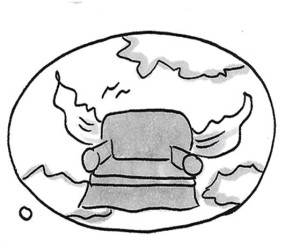 Being human means being conscious. Being conscious means knowing, “reality bites.”
Being human means being conscious. Being conscious means knowing, “reality bites.”
Little wonder evidence shows people have sought to alter their consciousness since the Stone Age. Whether its music, dance, the ingestion of psychoactive plants, or the modern pharmaceuticals, humans evince a strong desire to move beyond their present reality–to transcend it, even if only temporarily.
In the US, legalization of marijuana is in full swing, with sales poised to exceed 10 billion dollars in 2018. A recent report found that 70% of Americans take at least one prescription drug, with antidepressants and pain-killing opioids among the most widely used.
Meanwhile, overdoses of prescription drugs and heroin continue to be the leading cause of unintentional death, taking more lives than car accidents, breast cancer, and in 2016, more than the entire Vietnam war.
Yes, reality bites. More than that, its suffers by comparison. As an example, consider “talk therapy”–the profession specializing in helping people “get in touch” with themselves. Over the last decade, numbers are down, with 33% fewer people choosing to see a psychotherapist. Clear, if altering consciousness is the goal, therapy sucks.
 More than at any other time in history, drugs are plentiful and easily available. One contributing factor, a recent article in Fortune magazine points out, is the growing number of practitioners authorized to write scripts–groups such as nurse practitioners and physicians assistant that, in a brief 5-year period, managed to double the percentage of drugs they prescribe, accounting for almost a fifth of all retail sales. One of the newest groups to join the ranks is psychologists. Although the subject of continuing, contentious debate (1), the American Psychological Association is fully-invested in efforts to pass legislation supporting prescriptive authority. So far, five states are on board.
More than at any other time in history, drugs are plentiful and easily available. One contributing factor, a recent article in Fortune magazine points out, is the growing number of practitioners authorized to write scripts–groups such as nurse practitioners and physicians assistant that, in a brief 5-year period, managed to double the percentage of drugs they prescribe, accounting for almost a fifth of all retail sales. One of the newest groups to join the ranks is psychologists. Although the subject of continuing, contentious debate (1), the American Psychological Association is fully-invested in efforts to pass legislation supporting prescriptive authority. So far, five states are on board.
Given human nature, and the direction mental health professions are taking, I wonder whether there is a therapeutic alternative to more drugs? PLEASE SHARE your thoughts by hitting the comment button below.
As you do so, take a moment to watch my interview with Dr. Chris Rowe, a counselor whose research focused on the quality of instructional materials used to train psychologists to prescribe psychotropic drugs. He address the following questions: (1) do the programs and products present a balanced view of pharmaceutical products? (2) will psychologists be prepared, as advocates suggest, to “choose to prescribe or not?” and (3) will psychologists be able to withstand the market pressures that have dramatically shaped the practice of psychiatry?
Until next time,
Scott
Scott D. Miller, Ph.D.
Director, International Center for Clinical Excellence

Leave a Reply